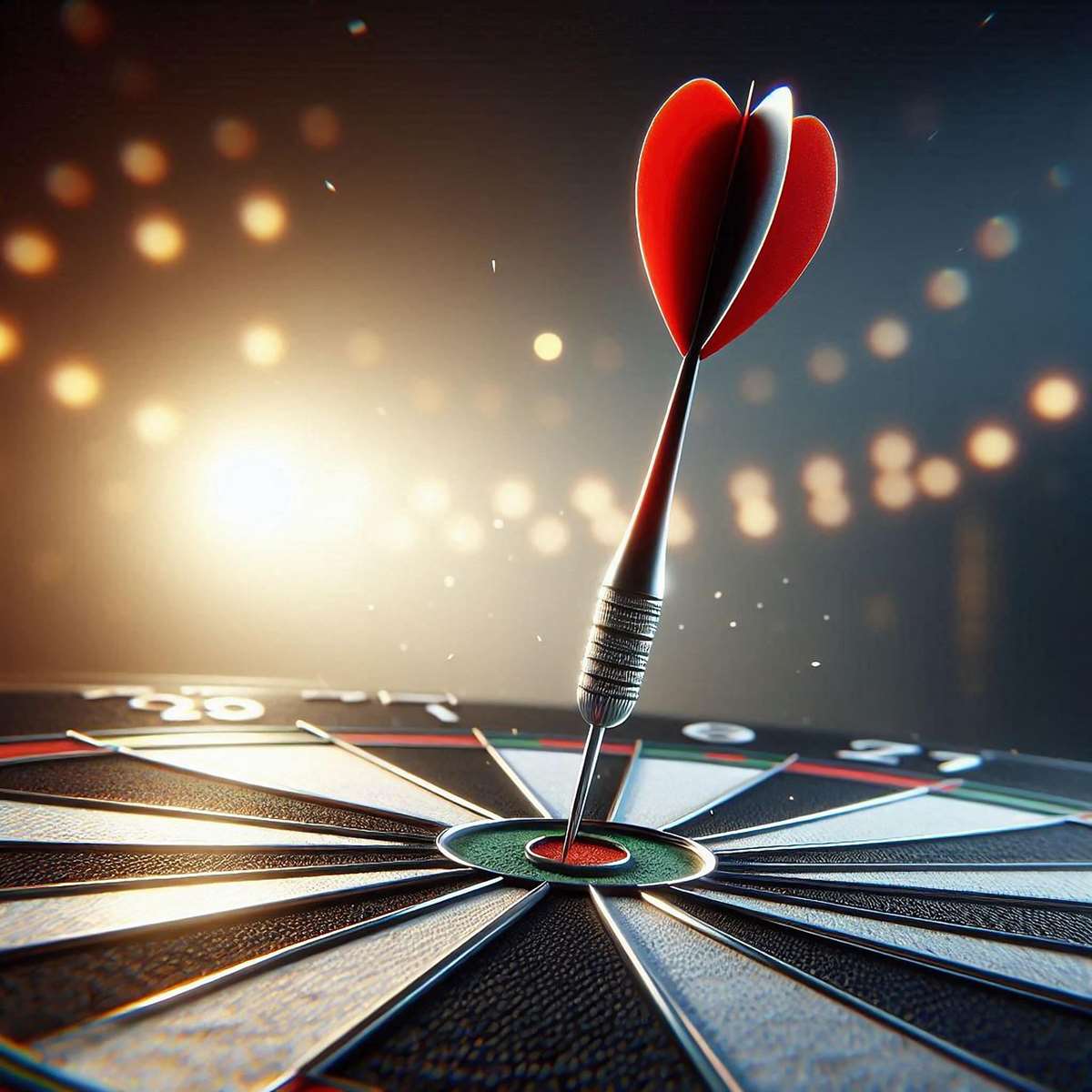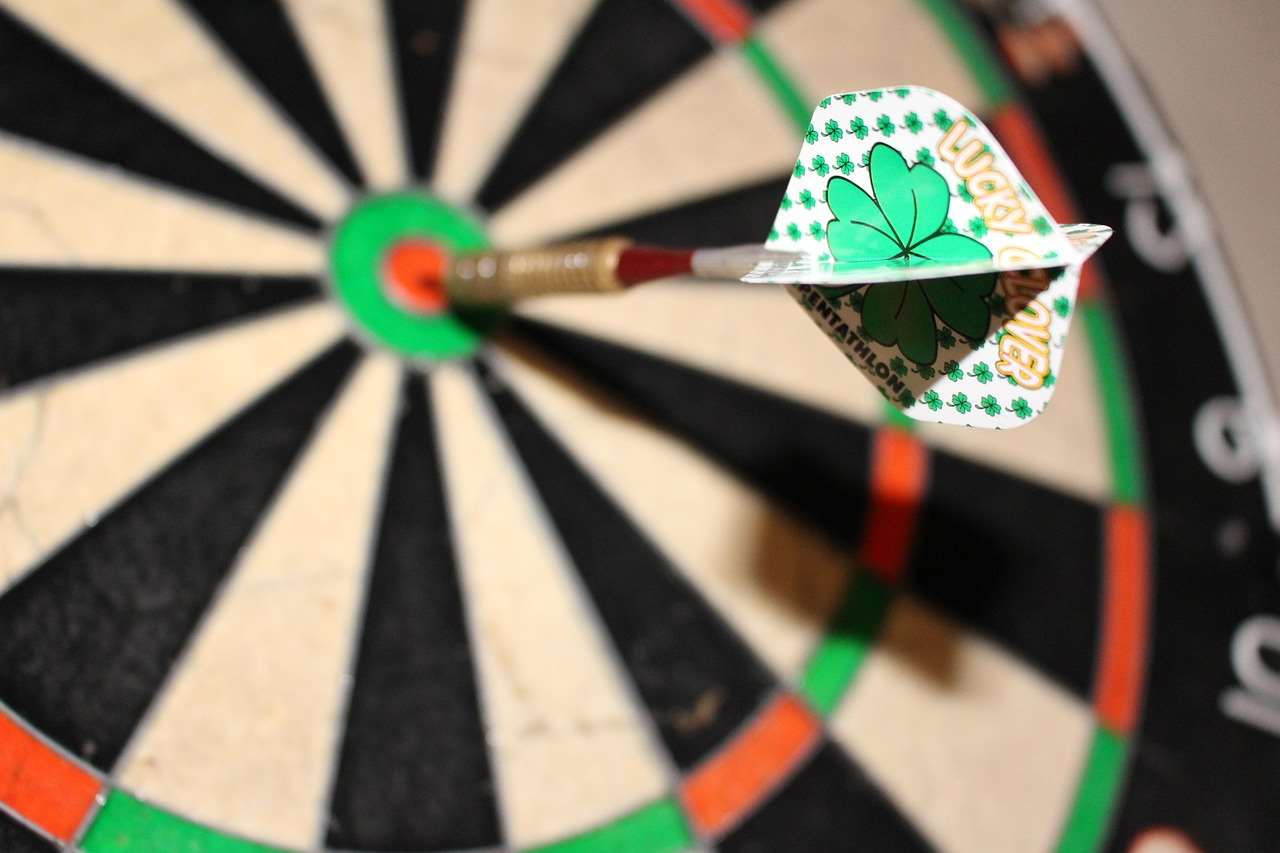Vision training for focus is crucial for improving your visual acuity and concentration, leading to enhanced performance in various activities. This article will delve into the specifics of vision training for focus, exploring techniques, benefits, and how to incorporate them into your daily routine. We’ll also cover related aspects to further optimize your visual performance.
⚠️ Still Using Pen & Paper (or a Chalkboard)?! ⚠️
Step into the future! The Dart Counter App handles all the scoring, suggests checkouts, and tracks your stats automatically. It's easier than you think!
Try the Smart Dart Counter App FREE!Ready for an upgrade? Click above!
Many people underestimate the importance of their vision in daily tasks, let alone specialized activities. Vision training for focus isn’t just about correcting refractive errors; it’s about optimizing your visual system for peak performance. This includes improving your eye coordination, peripheral vision, and focus, regardless of your current prescription.
Before we dive into specific exercises, let’s consider the underlying science. Our eyes are incredibly complex, and vision training works by engaging and strengthening different aspects of this intricate system. It’s like training any other muscle group – consistent effort leads to noticeable improvement. For instance, improving your visual acuity can help you track a moving object more effectively, while enhancing your depth perception can make it easier to judge distances accurately. The benefits extend far beyond athletic pursuits.
Vision Training for Focus: Techniques and Exercises
Vision training for focus involves a range of exercises designed to improve different aspects of visual performance. These exercises often focus on enhancing eye muscle strength, coordination, and the ability to sustain focus over prolonged periods. Here are some examples:
- Eye tracking exercises: Follow a moving object with your eyes, smoothly and without jerky movements. This can be as simple as tracking a pen moving across your desk or a finger moving in front of your face.
- Near-point and far-point focusing: Alternate your gaze between a near object (e.g., your finger held at arm’s length) and a far object (e.g., something across the room). This helps improve your eye’s ability to quickly switch between different focal distances.
- Peripheral vision exercises: While focusing on a central point, try to notice details in your peripheral vision. This helps expand your visual field and improve overall awareness.
- Convergence exercises: Bring a finger towards your nose slowly, focusing on it as it gets closer. This strengthens the muscles responsible for focusing on near objects. The opposite, divergence, where you focus on distant points while tracking is also helpful.

Remember, consistency is key. It’s better to perform these exercises for shorter periods regularly than to cram them into infrequent, lengthy sessions. Gradually increase the intensity and duration of your training as your eyes adapt. Consider incorporating vision training into your daily routine as a form of preventative care for long-term eye health. Regular exercises help improve focus and reduce eye strain.
The Benefits of Vision Training for Focus
The advantages of vision training for focus extend far beyond improved visual acuity. Regular practice offers a plethora of benefits, impacting various aspects of your life:
- Enhanced concentration and focus: Vision training directly targets your brain’s ability to concentrate and maintain focus. A sharp visual system leads to a sharper mind. Many people find it beneficial for academic work.
- Improved reading comprehension: Enhanced visual tracking and accommodation help improve speed and comprehension while reading. Those who struggle with reading find this particularly useful.
- Reduced eye strain: Regularly practicing exercises helps strengthen your eye muscles, reducing fatigue and strain from prolonged near-work activities like computer use or reading.
- Better athletic performance: Many sports rely on precise visual abilities. Vision training can significantly boost performance in sports requiring quick reactions, hand-eye coordination, and accurate target acquisition.
- Increased awareness and safety: Improving peripheral vision makes you more aware of your surroundings, which can be invaluable in situations where awareness is key.
Furthermore, vision training for focus can help manage or even mitigate certain visual conditions. While it’s not a replacement for medical treatment, it can be a valuable supplementary tool under professional guidance.
Finding a Vision Training Specialist
While many exercises can be performed independently, seeking guidance from a qualified optometrist or vision therapist is often recommended. These professionals can assess your specific needs, create a personalized training plan, and monitor your progress. They can also address any underlying visual conditions that may be hindering your focus.
A good vision therapist will work with you to determine your current visual abilities and identify areas needing improvement. They will then design a customized program tailored to your individual needs. This personalized approach ensures the training is effective and addresses your specific concerns. This is especially important for those struggling with specific visual challenges, such as convergence insufficiency or accommodative spasm.

When searching for a specialist, look for someone with experience in vision therapy and a good reputation. Read reviews and ask for recommendations from other professionals or individuals who have undergone vision training. Remember, investing in your vision is an investment in your overall well-being.
Vision Training for Focus and Daily Life
Integrating vision training for focus into your daily routine doesn’t require a huge time commitment. Even short, regular sessions can yield significant improvements. Here are some practical tips for incorporating vision training into your daily life:
- Short, frequent sessions: Aim for 10-15 minutes of exercises daily rather than one long session weekly.
- Incorporate it into your routine: Do exercises while waiting for a bus, during a coffee break, or before bed.
- Make it fun: Use engaging materials like computer games or apps designed for vision training.
- Be patient and consistent: Results may not be immediate, but consistent effort will yield improvements over time.
- Maintain a healthy lifestyle: Ensure adequate sleep, proper nutrition, and hydration to support your overall visual health. Remember that eye care and hydration are paramount for optimal vision.
Remember to consult your eye doctor before beginning any new vision training program. They can help ensure the exercises are appropriate for your specific needs and visual health. This is especially important if you have any pre-existing eye conditions.
Technology and Vision Training for Focus
Technology plays an increasingly important role in vision training. Several apps and computer programs offer interactive exercises that can help improve various aspects of your vision. These often include elements of gamification, which can make the training process more engaging and enjoyable. These apps can be a great way to supplement professional vision therapy.
However, it’s essential to approach technology-based vision training cautiously. Ensure the apps you use are developed by reputable sources and have positive user reviews. Avoid programs that make unrealistic claims or promote potentially harmful practices. Supplementing your work with a therapist is more beneficial. Remember that Darts Fitness Health also focuses on visual health and fitness.

Using technology responsibly in combination with the guidance of a qualified professional can optimize your vision training for focus journey. Look for apps that provide detailed feedback and progress tracking, allowing you to monitor your improvement over time. A balanced approach that combines professional guidance and technological assistance is likely to yield the best results.
Vision Training for Focus: Addressing Specific Challenges
Vision training for focus can be particularly helpful in addressing specific visual challenges. For instance, those struggling with near-point stress or difficulty maintaining focus during tasks requiring prolonged near-work can significantly benefit from a tailored program. This includes individuals who experience eye fatigue, headaches, or blurred vision after prolonged reading or computer use.
Similarly, individuals facing challenges with depth perception or hand-eye coordination can work with a vision therapist to develop exercises that target these specific areas. The tailored nature of vision therapy allows for a targeted approach to improve specific visual skills.
Even those without significant visual problems can improve their visual performance through regular training. Like any other skill, consistent practice strengthens and refines visual abilities, leading to enhanced concentration, improved accuracy, and reduced eye strain.
Maintaining Good Vision Health
While vision training for focus is beneficial, maintaining overall good vision health is also crucial. This involves taking care of your eyes through proper nutrition, regular eye check-ups, and protection from harmful UV rays. Adequate sleep and hydration also play a significant role in eye health. Remember to consult with eye care professionals for advice on specific products.

Incorporating a healthy lifestyle, alongside regular vision training, creates a synergistic effect that optimizes your visual performance. The combination of proactive measures and specialized training yields remarkable results. Moreover, adopting good habits reduces the likelihood of developing vision problems in the future, safeguarding long-term eye health.
Conclusion
Vision training for focus is a powerful tool for improving visual acuity and overall cognitive performance. Whether you’re aiming for enhanced athletic performance, improved academic success, or simply better daily functioning, regular vision training offers a multitude of benefits. Remember that consistent effort, coupled with the guidance of a qualified professional, is key to achieving optimal results. Taking care of your vision should be prioritized in your overall health plan, and proactive measures can yield significant benefits. Don’t hesitate to consult with a vision care specialist to determine the right path for your needs. They can help you assess your current abilities and craft a personalized program designed to maximize your vision potential. Consider exploring resources on breathing techniques to improve focus as well.
Start your journey towards sharper vision today! Remember to maintain a healthy lifestyle and practice regularly for optimal results. Incorporating even a short daily session can make a significant difference over time. Don’t forget to also check our resources on physical fitness, exercise routines, and recovery strategies.

Hi, I’m Dieter, and I created Dartcounter (Dartcounterapp.com). My motivation wasn’t being a darts expert – quite the opposite! When I first started playing, I loved the game but found keeping accurate scores and tracking stats difficult and distracting.
I figured I couldn’t be the only one struggling with this. So, I decided to build a solution: an easy-to-use application that everyone, no matter their experience level, could use to manage scoring effortlessly.
My goal for Dartcounter was simple: let the app handle the numbers – the scoring, the averages, the stats, even checkout suggestions – so players could focus purely on their throw and enjoying the game. It began as a way to solve my own beginner’s problem, and I’m thrilled it has grown into a helpful tool for the wider darts community.